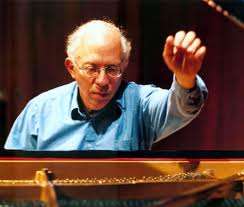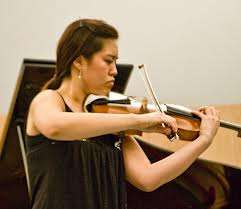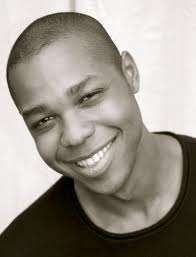|
Back
World Full of Sounds New York
Peter Sharp Theater, Juilliard School
09/22/2012 -
Chino Toledo: Mga Sulyap sa Simbahan ng Quapo Mula so Kalve Echague (Glimpses of Quiapo Church from Echague Street) (American premiere)
Andrew Ford: The Unquiet Grave for viola and orchestra (American premiere)
Menachem Zur: Cartoons for voice and chamber orchestra (American premiere)
Chinary Ung: Rain of Tears
Du Yun: Impeccable Quake (New York premiere)
Jocelin Pan (Viola), Davone Tines (Bass-baritone)
New Juilliard Ensemble, Joel Sachs (Founding Director and Conductor)

J. Sachs (© Nan Melville)
As traveler and conductor, Joel Sachs has scoured the earth looking for music in the most unlikely regions. And like the subject of his latest book, Henry Cowell, his musical voyages, especially with his New Juilliard Ensemble, have paid off with highly unusual concerts.
His program last nigh did encircle the world. Composers from Cambodia, China, the Philippines, Israel, even Australia, that forsaken land-mass precariously clinging to the bottom of our planet. Mr. Sachs produced a quintet of composers who attempted new languages and new forms.
Filipino composer Chino Toledo started with a picture that–for those who know Manila–was almost a literal soundscape. The bustling hustling sounds at the start more than vaguely resembled the start of Bartók’s Miraculous Mandarin, and for good reason. The Hungarian was trying to depict the crazy slums of Edwardian Limehouse in London. Manila’s Echague Street loudly proclaims the same madness, not of horses and coaches, but of Filipino Jeepneys and diesel-gushing buses and stalling taxis. And Mr. Toldeo gave a terrific orchestral picture of urban Filipino madness.
The end was the entrance to the church, where the music tapered down–literally–to near silence. I say literally because the thousand-odd tapers lit in the “Black Nazarene” church drip their wax drop by drop, exactly as as the piece ended.

J. Pan (© Courtesy of the Artist)
The Australian (or rather, the British-born) composer Andrew Ford was next with a viola concerto under the name of a folk song, The Unquiet Grave. Three connected movements, the second a quasi-cadenza, played with ravishing strength by Jocelin Pan. It was concentrated, lyrical and energetic work, which needs another hearing to give it unity, but was gripping for its viola and small orchestra (with some terrific timpani playing) were all strong.
After the intermission came two mood pieces. The Chinese-American composer Du Yun portrayed the enigmatically titled Impeccable Quake with impeccable percussive orchestration. True, the sounds could be called Varèse redux, but it takes expertise to handle his orchestra with such deftness.
The last, by Cambodian Chinary Ung was pure atmosphere, an orchestral question posed by the Buddha: “Which is greater, the waters in the oceans, or the tears of a wanderer?”
No prizes for the right answer. The work was orchestrally dense, the themes partly Asian but with a strange Hebraic-Arabic feeling. I gather that the flute solos were the tears, but one didn’t have to take this literally. Rain of Tears didn’t quite justify its length, but Mr Ung does know his orchestra

D. Tines (© Courtesy of the Artist)
The most puzzling piece was by Israeli composer Menachem Zur, called, Cartoons. And the chamber orchestra did begin with some Tom-and-Jerry style cartoon music, with a lot of telephone ringing and whiplash whizz-bang sounds.
It also had the benefit of Davone Tines, who walked on the stage with white pumps, an orange props bag, and a funny clownish vocal introduction. His non-stop singing, chanting, speaking, his bag full of scarves ‘n’ stuff were performed by a born entertainer with a magnificent range of falsettos, as well as his lustrous bass-baritone. (He recently played Gianni Schicchi, and evidently would have been splendid.).
The words were described as “phonetic poetry without syntactical meaning”, written by Anat Pick, an Israeli writer-entertainer with a Ph.d from Oxford, and were of course incomprehensible. That would have been fine. Nonsense syllables are no problem, as composer David del Tedici knows. But the music was...well, deadening. It rattled, it whooped along, Mr. Tynes made his effort at farce, and the New Juilliard Ensemble played their hearts for Mr. Zur is adroit in his work.
The result was neither amusing nor effective. Metaphorically, one felt that a heavy cadaver was being moved aimlessly around the stage by people dressed in gaudy costumes.
“One must,” explained a friend afterwards, “understand the philological theory of the piece.”
No anti-semantic, I’d give it another chance, just to hear Mr. Tines once more.
Harry Rolnick
|